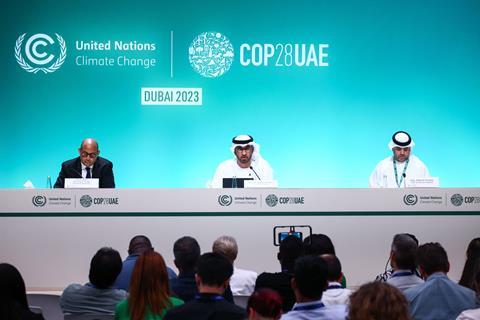Lucy Pieterse comments on the COP28 talks and shares how she has learnt that in her own life, small steps are important to make lasting change to better our world.

I recently sold my car. In its place I bought an electric cargo bike to ferry my children around. Apart from the feeling that I’m regularly dicing with death on the non-cycle friendly roads of Devon, I’m glad I made this decision. Every time I choose to use the bike, it feels like I’m making a small effort to reduce my carbon emissions.
But then I read The Guardian’s article, ‘Revealed: the huge climate impact of the middle classes’ and it threw me into despair. I’ve been living under the impression that every little change I make can help. But is it enough?
As I write this, King Charles III has just addressed the COP28 climate summit with this stark reminder:
“In 2050, our grandchildren will not ask what we said – they will be living with the consequences of what we did or didn’t do.”
Climate change and our faith
Christian charity, Tearfund is explicit that the climate crisis should matter to everyone, because it’s an issue of justice.
“The climate crisis is wreaking havoc in our world, putting millions of lives at risk. It’s intensifying global threats such as extreme weather events, sea-level rise and melting glaciers. The overwhelming scientific consensus is that this is a human-made problem, driven by the burning of fossil fuels.
We are seeing the outworking of a global system built on greed and overconsumption – one that is fundamentally at odds with God’s original intention for the world. We’re reaping what we’ve sown.”
So how do we respond? How do we shape our lives so that we’re following the greatest commandments to love God and love our neighbours?
So how do we respond? How do we shape our lives so that we’re following the greatest commandments to love God and love our neighbours?
A close friend in Devon could be mortgage free. But having travelled along a faith journey (with her husband), believing that God was calling them to make every effort to reduce their carbon emissions, the couple took on a monstrous project.
Read more on climate action
Slowing down can help to change the course of the climate crisis
They bought an end of terrace 1930s house in desperate need of repair and over two years, transformed it into an almost passive house. I say ‘almost’ because they’re still on the journey. They became experts in insulation, airtightness and lack of cold bridges. Not forgetting the mechanical ventilation system with heat recovery.
Today their house sits in the top 3% most energy efficient homes in the UK.
A few ideas
If you’re following the COP28 talks, you may be feeling increasingly frustrated and disillusioned. But while small personal steps towards reducing our own carbon footprints may seem inconsequential on the global stage, who knows what they could lead to.
For my friends with the passive house, it all began with changing their tea and coffee to fairtrade 15 years ago. It didn’t begin with the house. That gives me hope – small steps are important.
If you’re reading this and wondering what to do next, here are some great resources for fresh inspiration:
-
Tearfund and partners have created a Climate Emergency Toolkit, helping churches plan and take actions on their own emissions.
-
Constellation shares 35 ways to reduce carbon footprint.
And most importantly let’s not forget to pray and ask God to lead our steps. He knows where each of us are at and what each of us can take on.
I’m nervous to say it, but I think the next area we need to tackle as a family is our diet. So, heading into 2024 we’re going to attempt a month without processed food, simply sticking to local, seasonal food. I’m anticipating a lot of broccoli!
If you have any tips that you’ve found helpful to reduce your carbon emissions, we’d love to hear them, email womanalive@premier.org.uk






























1 Reader's comment